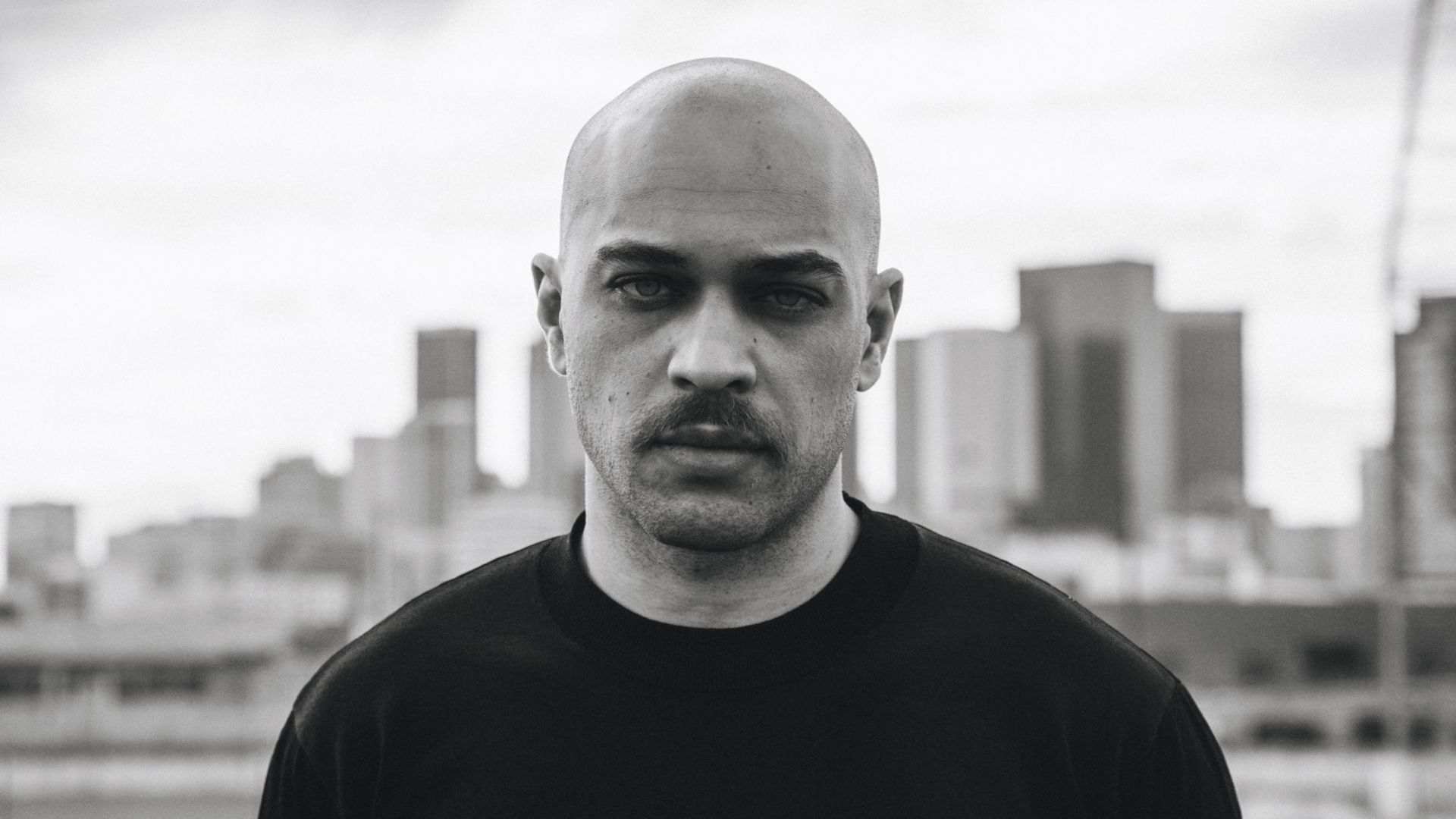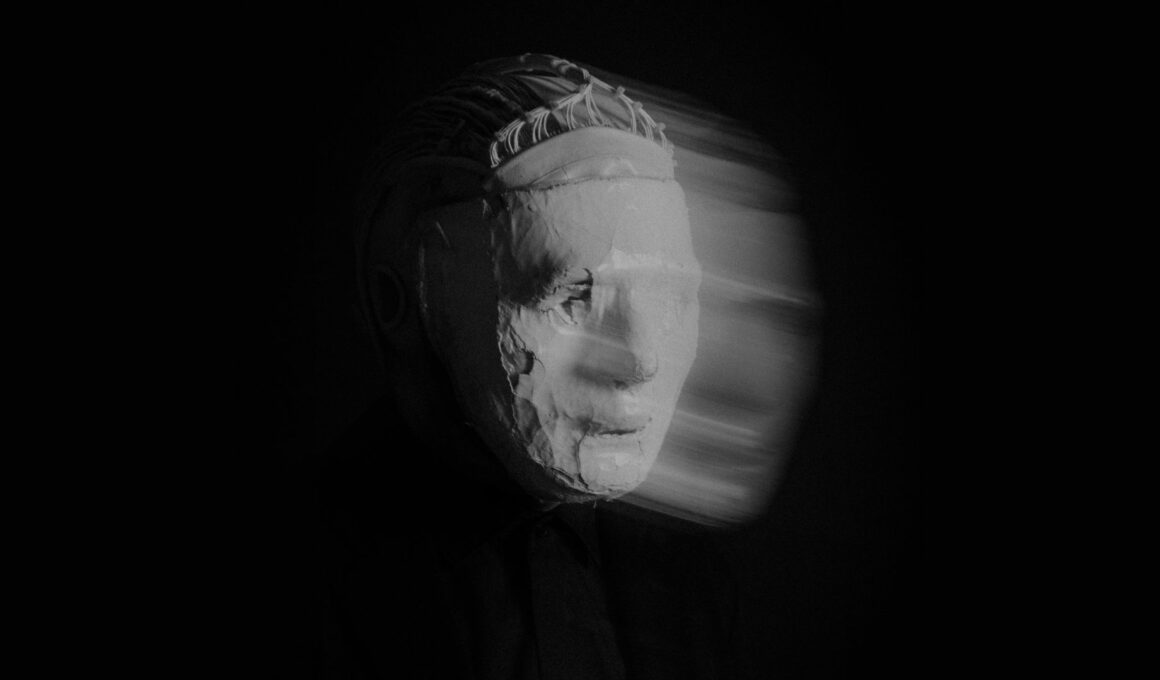
Mareux Brings A New Depth To Darkwave With Debut Record Lovers From The Past
On his first album, the California-based artist introduces us to a new generation of alternative music.
Mareux, the darkwave project of producer and songwriter Aryan Ashtiani, is the perfect slow-burn success story. Ashtiani has been making music for decades, growing and changing as new wave, post-punk and goth fanned out into EBM, coldwave, and other related genres. Yet, Ashtiani’s goal is as a tastemaker – the one-stop source for discovering the deeper world of alternative culture – especially for the new generation.
It’s not a simple feat to keep a genre updated and relevant whilst still staying true to its roots. To do this, Mareux takes a minimalist stance on synth-based alternative music, opting for creating the maximum atmosphere with a handful of sounds, as opposed to going wild with production or lyrics. At its heart, Lovers From The Past is an album thick with descriptions of control, lust, temptation, and the overflow of emotions. Yet it does this through the small details, allowing the emotional associations of the audience to come to the foreground, which is exactly what makes it so powerful.
In this way, the album is like a genius soundtrack that is better than the film itself. Sonically, its gloomy, smokey production topped with deep, rich vocals makes for an ideal rainy-day backdrop. Yet the stories it tells cannot help but take center stage. Little couplets, like in the cleverly worded “Heaven On Earth”, where he describes “on my phone, monochrome, taking pictures that are never shown“, expertly translate the gothic to the modern day. This is no small feat in a genre that, when it first started, relied heavily on inspiration from the literature of past eras. Yet Ashtiani has an effortless grasp of the nexuses that carry its legacy in the modern world. In this way, he is relatable to the younger fans who he seeks to introduce to the subculture, yet remains authentic to its inception.
His less-is-more approach is another example of this purist thought. It’s easy for any artist to update their influences by relying on technology or by mixing and matching their chosen genre with new developments that came in after its heyday. But Mareux has really stayed true to celebrating the artists he loves. In this way, he has fine-tuned a niche where with many of the same elements such as gated snares, Andrew Eldritch-like vocals, and dramatic lyrics, he truly creates a distinctive artistic thumbprint. “I’ve never felt so helpless,” he sings, without any sorrow, “until tonight”. With a hard-to-bear intimacy, this is a phenomenal, immersive album that carries you away in the best manner possible.
Ashtiani truly deserves his rise to fame – one which is the result of obvious hard work and dedication as opposed to any stroke of luck. His breakthrough came in 2021 with a cover of The Cure’s “The Perfect Girl”, which subsequently carried him on a wave of popularity that saw its music video feature Violet Chachki of RuPaul’s drag race and gain over a billion TikTok views. This set the foundation for the album, released on Warner Records. Though his debut, it carries the mark of a much more mature and experienced artist, and indeed Mareux’s underground experience has undoubtedly helped him craft such cohesive and deep emotions through music. A collaboration with King Woman on the ethereal track “Glass” – another hit of 2022 alongside his cover of Robert Smith – shows how sleekly he already fits into the scene at a more visible level, too.
Overall, Mareux is intimate, moody, subtle, and timeless. Tracks like “Night Vision”, with the ice-cold synth line that opens it slowly and soulfully, open the doors to a pan-gothic, mesmerizing cinematic world, where “she calls for me… all the way home”. Conversely, the lead single, “Little Lies” has a more upbeat bassline where nevertheless “I’m the only thing that you could ever hold”. This is an album that confounds the ability to classify tracks as happy or sad, yet this is exactly what helps it pull off the original sophistication that goth used as counter-culture.
If this debut is anything to go by, Ashtiani will continue to innovate. Easily the strongest feature is his restrained approach and smooth, slow melodies, and any sophomore album leaves ample space for him to dig deep into the emotional scope of his work. Either way, it seems like he is already getting involved with the alternative as a whole – from drag to his work with other artists, his self-styled role as a cultural collector of influences is bound to take him to many more deliciously gloomy places.
Listen Now
Mareux (US)

Featured Image by David Vera La Skyline









